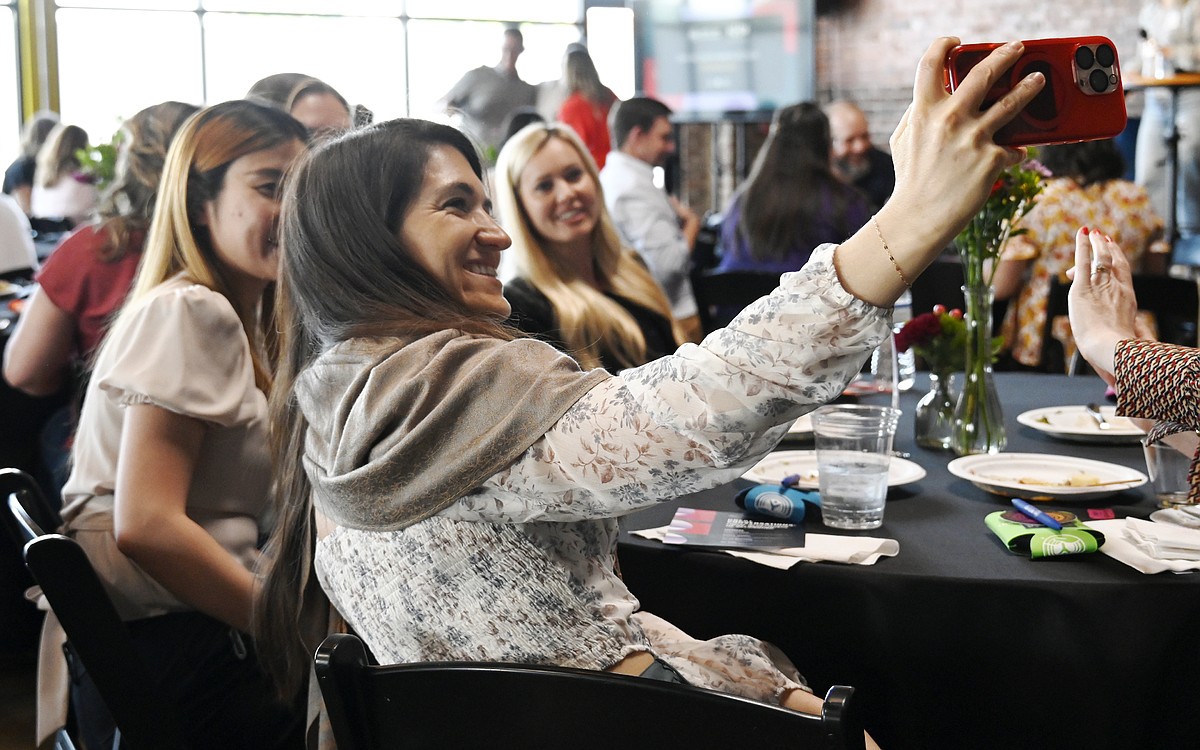Cooper’s Alley, Glass Street, a BlueCross Healthy Place park and an old freight depot turned into an accounting office.
All are places in Chattanooga that have been made and utilized well, at least according to four Chattanoogans who gathered Tuesday night to talk during an event hosted by the United Way of Greater Chattanooga about how the city’s built environment — including streets, parks and housing — affects how its people live, work and interact.
Esther Lovingood, with the River City Co., started by asking the group to think about public spaces where they feel a sense of belonging.
River City has spearheaded several projects aimed at bringing more people to Chattanooga’s downtown areas, including upgrades to Miller Park and Plaza and an ongoing effort to reconfigure the riverfront space at Ross’s Landing.
(READ MORE: Planners seek feedback on Chattanooga’s riverfront revamp plan)
“We’ve all seen empty parks,” Lovingood said. “We’ve seen vacant plazas, public spaces. If they don’t center the community, the community will either A, not participate, or B, potentially be displaced by the commodification and the increased desirability in an area — which is exactly what we do not want to happen as place-makers.”
To improve public spaces, Lovingood said it’s helpful to think about who is not present and why they may not be there.
“We’ve got people who are choosing Chattanooga from all around the world right now,” Lovingood said. “It’s a really amazing time to be in development in Chattanooga, but some of the best initiatives that I’ve seen personally were started first by concerned neighbors.”
That attitude is what it takes to get things done in a world where government bureaucracy tends to move slowly on change, speaker Jon Jon Wesolowski, a local urbanist advocate, said at the event.
Wesolowski is part of a group that started building and placing wooden benches at bus stops across the city. Those stops are often only marked by a sign, if at all. That effort, which began in early 2023, sparked other groups and individuals to build and place their own benches, Wesolowski said.
“To get things done that have never been done, you’re going to have to have people that do things that have never been done before,” Wesolowski said. “What that means is, they’re going to do things that they don’t have permission for and they don’t have procedures for. They’re gonna have to do things that might be a little bit illegal, something that I call good vandalism.”
These guerrilla tactics can actually become policy, he said. If he had a magic wand, Wesolowski said later, he would eliminate minimum parking requirements from the city’s zoning code.
Variety in housing also promotes diversity, panelist Donna C. Williams said. The passage of the Civil Rights Act in 1964 allowed her parents to move out of the housing projects at the Westside and become homeowners, she said.
“That opened up a bigger world for us,” she said.
When she returned to Chattanooga in 2001, years after leaving the city after college like many of her peers, Williams said she asked her real estate agent to look for homes in a diverse and inclusive neighborhood.
“And he was like, ‘What are you talking about?'” Williams said.
She ended up buying a property in Fort Wood, which was a more mixed-income area and had large homes as well as apartments, she said. Then she bought and converted a duplex in Highland Park, then a cottage in Lincoln Park near Engel Stadium, then a Glenwood Drive mansion and a pair of houses on M.L. King Boulevard, where she added accessory dwelling units.
(READ MORE: Assessments rising fast in Chattanooga’s lowest-income areas)
“I’ve had big houses, I’ve had little houses, I’ve had everything in between,” Williams said. “We need zoning to be part of the equation for diversity. We need to address and minimize the NIMBYs — you know, not in my backyard.”
After a quick talk from each speaker, attendees were told to turn to their table to discuss what they’d heard.
Terran Anderson, a United Way vice president, encouraged attendees to sit with people they didn’t already know and to avoid the awkward silence that usually comes when told to discuss.
“The wine is flowing, the beer is flowing,” Anderson told the crowd. “People at your table, introduce yourself and have a conversation.”
On the topic of public spaces, one attendee spoke of running on the Riverwalk that morning. It was cool to see how that trail has improved and been cleaned up over the years, the person said, but it still doesn’t feel safe at night.
Another mentioned the Walnut Street Bridge and Coolidge Park, where he and his wife used to dream about taking their children. Now, that’s their reality, he said, but he’s lamenting the time his kids are losing on the bridge while it’s under repairs.
(READ MORE: Here’s what you should know about the Walnut Street Bridge’s 18-month closure)
On housing, one attendee said it took his brother a year to find a home, constantly being outbid by cash offers from out-of-state buyers, before finally buying a fixer-upper.
Will Clegg, a partner at HHM CPAs, said those problems call for leadership today, not just for tomorrow.
“How many times, especially being an emerging leader, do you hear that you’re the future?” Clegg said. “Why be the future?”
Clegg encouraged attendees to meet someone outside their industry and to make connections that help get people off the sidelines and into the game.
“You’ll be amazed at what you can learn,” he said.
Contact Ellen Gerst at egerst@timesfreepress.com or 423-757-6319.
